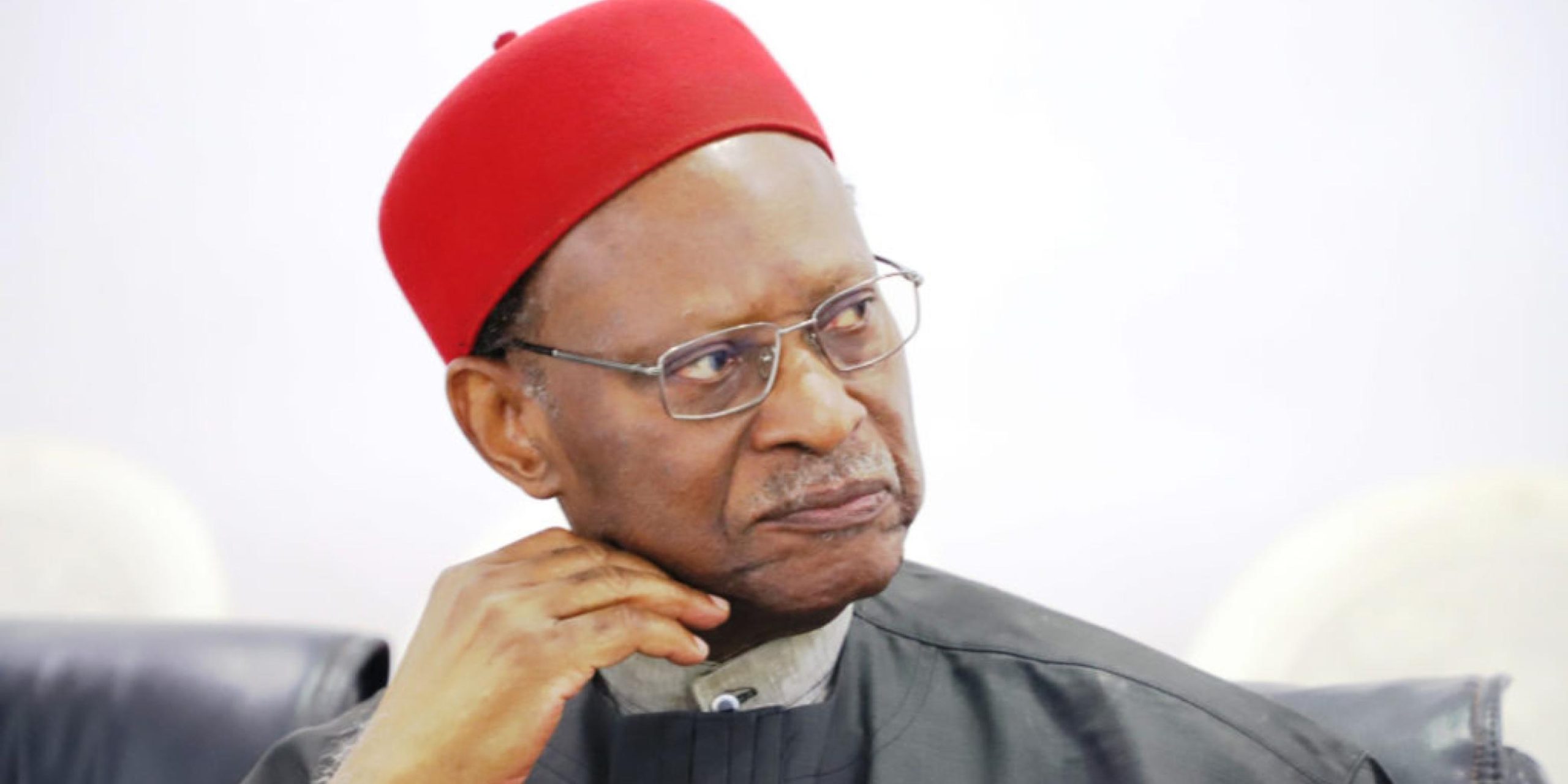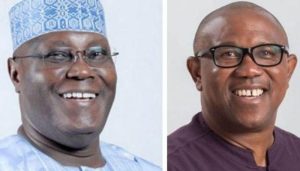Nigeria Was More Peaceful, Developed Faster in First 6 Years of Independence Under Regional Governments — Emeka Anyaoku
On April 29, 2025, history and contemporary realities intersected in a compelling dialogue as some of Nigeria’s foremost statesmen, diplomats, and public intellectuals gathered in Enugu for the 14th edition of the *Emeka Anyaoku Distinguished Lecture Series on Good Governance*. With the theme “The Imperative of Good Governance in Nigeria,” the event offered not just retrospection but also urgent prescriptions for Nigeria’s governance architecture, which many speakers agreed had become unworkable.
The central voice of the lecture, Chief Emeka Anyaoku—former Commonwealth Secretary-General and globally respected diplomat—delivered a clear and forceful message: Nigeria was more peaceful and developed faster in its first six years of independence when it operated under a truly federal constitution with autonomous regions. That system, he argued, acknowledged the country’s plural nature and allowed regions to manage their affairs effectively.
YOU MAY READ
African Development Bank to Mobilise $2.2 Billion for Special Agro-Processing Zones in 28 Nigerian States
Chief Anyaoku, now in his nineties, has lived through nearly all phases of Nigeria’s modern political history. From colonial subjugation to the euphoria of independence in 1960, through the brutal civil war and repeated military takeovers, to the challenges of post-1999 democracy, he remains one of Nigeria’s most consistent voices on the need to restructure the federation.
Speaking to an audience of youth leaders, academics, public servants, and political figures at the International Conference Centre in Enugu, Anyaoku didn’t mince words:
> “Nigeria was more peaceful and was developing faster in the first six years of our independence because it had a genuine federal constitution. That constitution allowed the four regions to take care of their regional development, their social amenities, education, health, and internal security.”
The diplomat traced Nigeria’s pre-1966 political structure, emphasizing how the then Northern, Western, Eastern, and Mid-Western regions had the autonomy to drive economic development and social progress. According to him, this structure recognized and respected the nation’s plurality—its diverse ethnicities, religions, languages, and histories.
He warned that countries that failed to address pluralism with a genuine federal constitution often disintegrated. “We need a new democratic constitution that acknowledges and reflects our diversity. Without such a framework, good governance will remain elusive,” Anyaoku insisted.
The first six years after independence—1960 to 1966—saw Nigeria make measurable strides in education, healthcare, agriculture, and infrastructure. The regions competed to excel, resulting in a dynamic era of innovation.
YOU MAY READ
The Anambra black and blue Rail Master Plan: A Vision for Sustainable Development and Connectivity
The Western Region, under Obafemi Awolowo, implemented free primary education and introduced television broadcasting—the first in Africa. The Eastern Region, led by Dr. Michael Okpara, saw major agricultural and industrial growth. The North, under Sir Ahmadu Bello, focused on regional pride, education, and conservative economic expansion.
Under that federal constitution, 50% of revenue from natural resources was retained by the region of origin, fostering accountability and innovation. Today, Anyaoku pointed out, that structure has been replaced by a heavily centralized system that encourages dependence on federal allocations and discourages healthy competition.
Adding intellectual weight to the call for reform was Professor Ibrahim Gambari, former Chief of Staff to President Muhammadu Buhari and a respected international relations scholar. Delivering the keynote address, Gambari supported Anyaoku’s thesis and expanded on it, calling for a “radical restructuring” of Nigeria’s federal arrangement.
Gambari’s address resonated with many young attendees, particularly his critique of Nigeria’s political elite and the state’s inability to deliver basic public goods. “The crisis of governance in Nigeria is part of a broader global challenge,” he said. “But unlike others, our crisis is complicated by an artificial federal structure, institutional decay, and elite indifference.”
General Ike Nwachukwu, former Minister of Foreign Affairs and chairman of the lecture, delivered what many saw as a patriotic but sobering assessment of Nigeria’s governance woes. With decades of military and diplomatic experience, Nwachukwu reinforced calls for federal restructuring but added that without respect for the rule of law, constitutionalism, and judicial independence, no system would work.
“Nigeria, with its rich tapestry of culture, abundant resources, and resilient populace, holds immense potential,” he began. “Yet, its challenges in leadership and governance have often impeded our journey to sustainable development.”
YOU MAY READ
New Era of Leadership and Hope: Mark Okoye’s Inauguration Speech for the South East Development Commission
According to Nwachukwu, giving states autonomy over their resources and internal affairs would not lead to disintegration, as some fear, but would foster national unity through responsible governance and local accountability.
Governor Peter Mbah of Enugu State, who hosted the lecture series, spoke with the urgency of a sitting leader confronting Nigeria’s governance challenges daily. His address echoed many of the themes articulated by Anyaoku, Gambari, and Nwachukwu but focused on implementation.
“Good governance – or lack of it – is often the fine margin between an ascendant state and one on a downward trajectory,” he said. “Good intentions alone do not translate to good leadership. Good leadership proceeds from the understanding that the people should be the centrepiece of state policies and projects.”
Mbah, who has championed youth inclusion and digital transformation in Enugu, called for people-centred policies, investments in human capital, and practical decentralization of power. He cited examples from his administration where local empowerment, not centralization, had yielded better results.
One common thread in the lecture was the damage done by centralization. After the 1966 military coup, Nigeria’s federal structure was effectively dismantled. The military imposed a unitary command structure that was never reversed. Even after returning to civilian rule in 1999, the 1999 Constitution—a military document—remained in place.
That constitution, many argue, concentrates excessive power in the hands of the federal government, making states fiscally and administratively weak. Over 60% of Nigeria’s states today depend almost entirely on monthly allocations from the Federation Account. Few are economically self-sustaining.
This overcentralization has contributed to the rise in insecurity, poor infrastructure, failing education systems, and corruption. It has also stifled regional identities and the natural diversity that once drove Nigeria’s early growth.
Calls for “restructuring” have become a staple in Nigerian political discourse, yet few administrations have taken practical steps toward it. Critics of restructuring often argue that it is a veiled push for secession or ethnic domination. However, the Anyaoku Lecture reminded the country that regional autonomy worked before—and that it can work again.
Anyaoku and others made clear that regionalism is not synonymous with division. Instead, it is a system that empowers every part of the country to develop at its own pace while contributing to a united national identity. Federalism, when correctly implemented, does not weaken nations—it strengthens them.
YOU MAY READ
Bayelsa State Governor, Douye Diri, Elected Chairman of South-South Governors’ Forum: A New Era of Regional Cooperation and Development
The audience responded with multiple rounds of applause, particularly when Anyaoku noted that countries like Canada, India, and Switzerland thrive on federalism despite their diversity. “Nigeria’s diversity should be a strength, not a weakness,” he said.
The lecture series ended with a panel discussion involving youth representatives, civil society leaders, and academics. Many voiced frustration that such high-level conversations rarely translate into legislative or constitutional action. Yet, they also expressed hope that a critical mass of citizens, especially young Nigerians, could push for change from below.
In a country where over 70% of the population is under 35, the future lies in their hands. If Nigeria’s young people can be mobilized around the vision of a restructured, truly federal Nigeria, the dream of the early 1960s may not be lost forever.
As Chief Emeka Anyaoku left the podium, he received a standing ovation—not just for his speech, but for a lifetime of principled service. His call for a return to the spirit and structure of Nigeria’s early post-independence years is not about nostalgia. It is a vision of a better future rooted in lessons from the past.
Nigeria once had a federal constitution that worked. Its regions thrived, its people were hopeful, and its leaders were accountable. The country was not perfect—far from it—but it was moving in the right direction.
Now, as insecurity, economic hardship, and political distrust threaten national unity, the lessons of that era must be revisited. Whether Nigeria has the political will to restructure remains to be seen. But what is certain is that without good governance rooted in federalism and local accountability, Nigeria risks continuing on its downward spiral.
Perhaps the answer lies not in inventing a new system, but in returning to the old one—with modern updates. As Anyaoku, Gambari, Nwachukwu, and Mbah have reminded the nation, peace, prosperity, and progress are still within reach—if only Nigeria chooses them.





